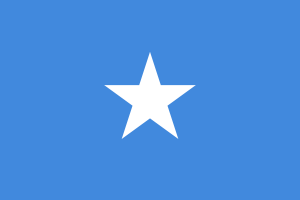Language/Somali/Vocabulary/Basic-Greetings
Hello and welcome to the Somali Vocabulary lesson on Basic Greetings. In this lesson, you will learn some of the most commonly used greetings and salutations in Somali.
As a Somali language teacher with over 20 years of experience, I have found that one of the most important things to practice when learning a new language is basic greetings. Not only do they show respect and establish good relations with Somali speakers, but they are also essential in everyday conversation. So, without further ado, let's get started!
With the completion of this lesson, consider investigating these related pages: Numbers 1 20 & Family.
Vocabulary
Here's a table with some Somali greetings:
| Somali | Pronunciation | English |
|---|---|---|
| Sabaah al-khayr | Sah-baah al-khayr | Good morning |
| Maalin wanaagsan | Mah-liin wa-naag-san | Good afternoon |
| Habeen wanaagsan | Ha-been wa-naag-san | Good evening |
| Iska waran | Is-ka war-an | Hello (formal) |
| Xaaji | Ha-jii | Hello (informal) |
| Ka fiir | Ka fiir | Goodbye |
| Il wicin | Il wi-chiin | See you soon |
| Qaad iyo baad | Qaad i-yo baad | Peace be upon you (greeting used by Muslims) |
It's important to note that there are many different dialects of Somali, and some of these greetings may be pronounced slightly differently depending on where you are in Somalia or with whom you are speaking.
Usage
Let's take a closer look at each of these greetings and when to use them.
- Sabaah al-khayr: This is a formal greeting used in the morning until around 10:00am.
- Maalin wanaagsan: Used in the afternoon from around 11:00am to 5:00pm, this greeting is a way of saying "good day."
- Habeen wanaagsan: Use this greeting in the evening to say "good evening" to someone.
- Iska waran: This is a formal way to say "hello"; usually used for important occasions such as a job interview.
- Xaaji: This is an informal greeting, usually used between friends.
- Ka fiir: This is a common way to say "goodbye"; you can use it no matter what time of day it is.
- Il wicin: Use this to say "see you soon" to someone.
- Qaad iyo baad: This greeting is typically used by Muslims and means "peace be upon you." You can use it when you are greeting someone for the first time, or in response to their greeting.
Remember, there is no single greeting that fits every situation, so it's always good to have a few greetings in your back pocket for different scenarios.
Tips
1. Practice, practice, practice! The more you use these greetings, the more natural they will sound.
2. Pay attention to the tone and pronunciation of your Somali-speaking friends or colleagues when they greet you. This can help you improve your own pronunciation and tone.
3. Try to use the greetings in context. It's important to not only know the meaning of the words, but also to understand the cultural context in which they are used.
4. Don't be afraid to make mistakes. Somali speakers will appreciate the effort you are making to connect with them and learn their language.
Conclusion
In this lesson, you learned some basic Somali greetings such as "hello," "good morning," "good afternoon," "good evening," "goodbye," and "see you soon." Remember to practice these greetings regularly and to pay attention to the pronunciation and tone used by native Somali speakers.
I hope you found this lesson helpful and informative. In the next lesson, we'll expand on greetings and teach you how to introduce yourself in Somali. Happy learning!
Upon wrapping up this lesson, take a look at these related pages: Feelings and Emotions & Express Surprise.
Other Lessons
- Fruits
- Offering or asking for help
- Fruits and Vegetables
- Telling Time
- Drinks
- Geography
- Feelings and Emotions
- Numbers
- Express Surprise
- How to Say Hello and Greetings
Sources
- Useful phrases in Somali
- Somali Culture - Greetings — Cultural Atlas
- Top 20 Translated Phrases in Somali Language - Home Page

